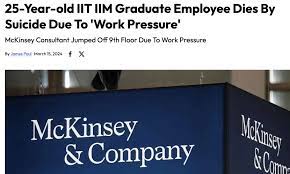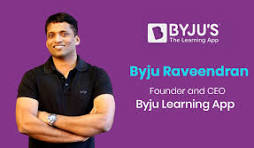
India’s education sector has always had serious issues. From poorly maintained to dilapidated government schools and exorbitantly expensive private schools, good education is still a luxury for many, especially in the rural areas. But pushing for education for all blindly has only ended up creating more problems.
India has had a robust societal structure for thousands of years. Society was broadly divided into 4 categories based on profession – 1) Scholars 2) Warriors 3) Traders and 4) All other Professionals. Every profession was integral to maintaining the balance and needs of the society. This was why it was essential that each profession be handed over to the next generation along with the vast array of knowledge accumulated over the years. In times of wars, people from other categories also used to join the warriors. This is shown beautifully in the movie 300 where the Greek army is shown as a group of soldiers banded together from all professions whereas Spartan soldiers knew nothing else to do other than to fight.
According to ancient Indian texts, till the end of the Dwapar Yug or 3rd Age, there were only scholars and sages who used to advise kings and give knowledge to people. Then society changed drastically with the advent of Kali Yug or 4th Age and the beginning of idol worship. Heroes became Gods and started getting worshipped in temples. Scholars attached their knowledge to Gods, gave it divinity and declared themselves superior to all other categories. They usurped knowledge by creating Gods out of everyone who had superior knowledge and skills. Warriors Ram & Krishna, Vishwakarma, an architect and Dhanwantari who had the knowledge of medicines and treating diseases were all made Gods. The scholars started serving only in temples thereby creating a new profession. With knowledge in their grasp, they started looking down on the dark skinned professionals who used to do all the manual labour. This is how India’s caste system was born and the society got divided into 1) Brahmins 2) Kshatriyas 3) Vaishyas and 4) Shudras. Through the centuries, each caste got further divided into numerous sub castes making Indian society how it is today.
Knowledge of the Gods Brahmins possessed were denied to other castes. Shudras were the ones who were most affected as they were denied access to all knowledge and languished under caste based oppression. When the British introduced their form of education in India and built schools, the upper caste usurped even those and denied education to the lower caste people. It was to compensate for all the oppression they suffered for centuries that caste based reservation was made part of the Constitution for their upliftment.
But caste based oppression and humiliation continues to this day. Caste based reservation has not served to erase the caste based divide in the society. People of the lower castes have chased educational courses aspiring for professions traditionally being done by the upper caste people. They seem to be in the false belief that achieving academic and economic equality with upper class people will erase caste based inequality.
In India, anyone who is good in science and math in school is a potential candidate to become an engineer or a doctor now. The mad race to engineering and medical courses repeats every year. I am an engineer partly because of this reason. The demand for engineering and medical courses are so high that numerous private colleges have sprung up to accommodate candidates who do not qualify the entrance exams for getting admitted in government colleges. Is it because the demand for engineers and doctors is so high in India? On the contrary, both are languishing and engineers are even taking up the jobs of clerks. Then why such madness? Because Vishwakarma and Dhanwantari are Gods of engineering and medicine respectively and upper castes have traditionally had their hegemony over jobs in these fields. People of the lower castes are simply chasing the life of the upper caste devoid of comprehension and logic.
Caste based discrimination reported and exposed recently in Cisco in the US shows how this curse tags along with Hindus wherever they go and how prophetic were the words of Bhim Rao Ambedkar, one of the architects of Indian Constitution. Reservations in education and public sector jobs have only served to increase the animosity of upper castes towards the lower ones because different rules for different castes has made the field of competition uneven.
To compound the woes, people from rural areas are leaving behind agriculture and their traditional occupation and flocking to cities in search of education, blue and white collar jobs and the fancy urban life. The problem with this came to the fore when COVID-19 struck the crowded cities, state governments were unable to provide even food for the migrants during lock down period, they started returning to their homes by whatever means of transport and many died on the way due to exhaustion, starvation and accidents. This is a systemic rather than a governance and administration problem.
Reservations and access to education and jobs to all is not going to solve what is ailing India’s society. When I was in the Netherlands I have overheard people talking proudly about family members who are bus drivers. In India, bus drivers are looked down upon and even more when it comes to bus cleaners. Why? Because these jobs are usually done by people from the lower castes and if these jobs are done by upper caste people then they are academically poor. India’s problem is with lack of equal respectability for all jobs and occupations. Discrimination is 3 fold now, based on caste, education and economic status. A sewage cleaner’s job is as important in society as that of any other professional, but he will always be discriminated based on these 3 factors and will be associated with all the filth of the sewage. A goldsmith might be rich but will still be sneered upon behind his back based on his caste and education.
While I am happy to read and hear about children of people doing the lowly jobs performing well in school exams, it saddens me to hear them say they want to become engineers and doctors and scientists. They are the few who have access to higher education and can go back and improve the working conditions of the jobs of their parents. When I read about a group of engineers who had created a robot to clean sewage in my home state, what I first searched for was whether anyone in the team came from the background of sewage cleaners. A sewage cleaner’s son or daughter coming up with such a creation would have been the perfect situation.
With access to advance technology, anything is possible now. Someone whose father or ancestors were blacksmiths can get educated and still become a blacksmith with cutting edge techniques and machines. People of lower castes should just forget about respectability and equality for now, focus on getting education and reviving and improving the occupations of their ancestors. Respect will come when a blacksmith starts selling his skills and products through mobile apps. A truck driver’s daughter should use her education to improve the design of trucks and making truck driving more comfortable. Erasing caste based discriminatory mindset will take time but restoring equal respect for all professionals in society will be the stepping stone and will happen only when the next generations start making informed choices.
















